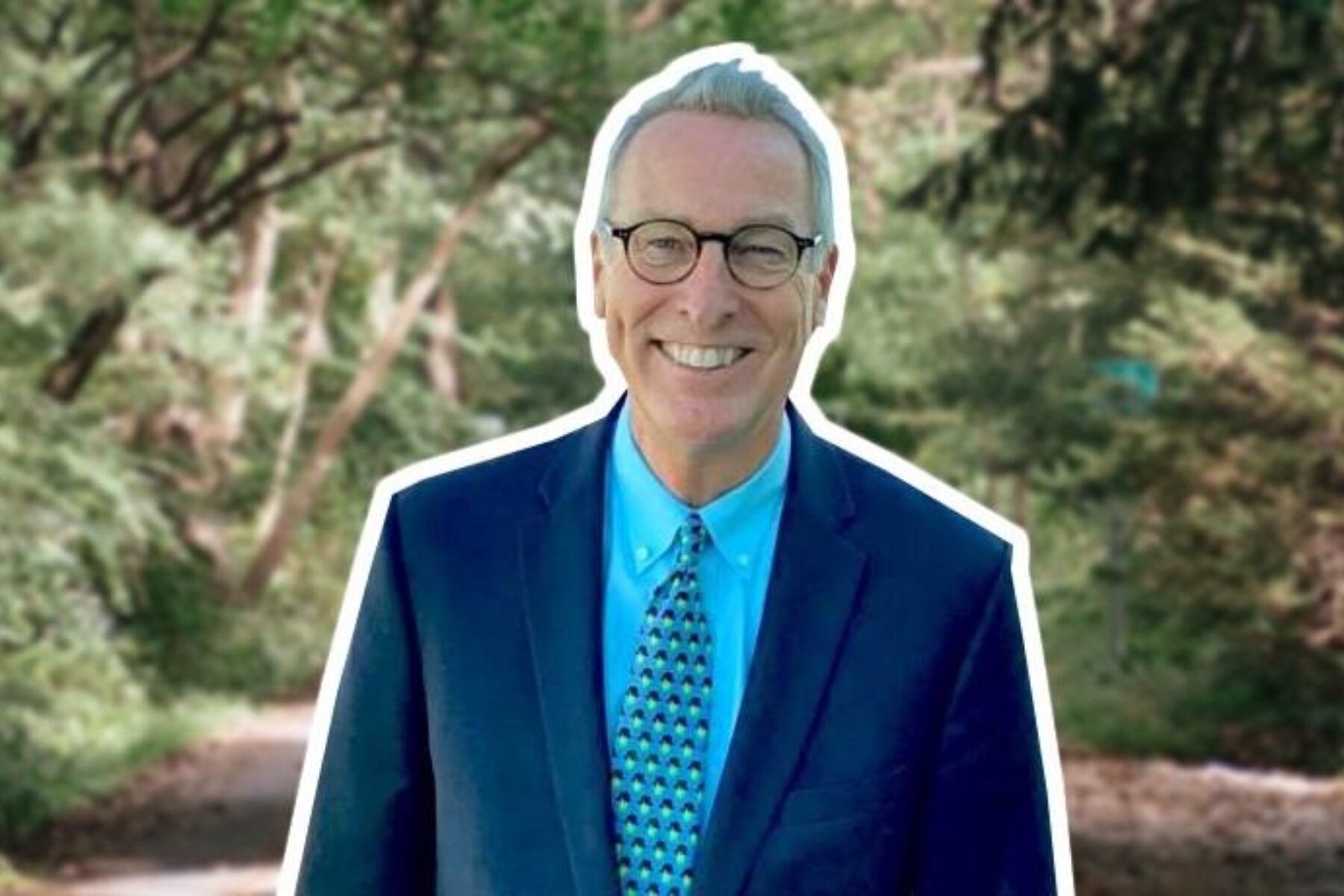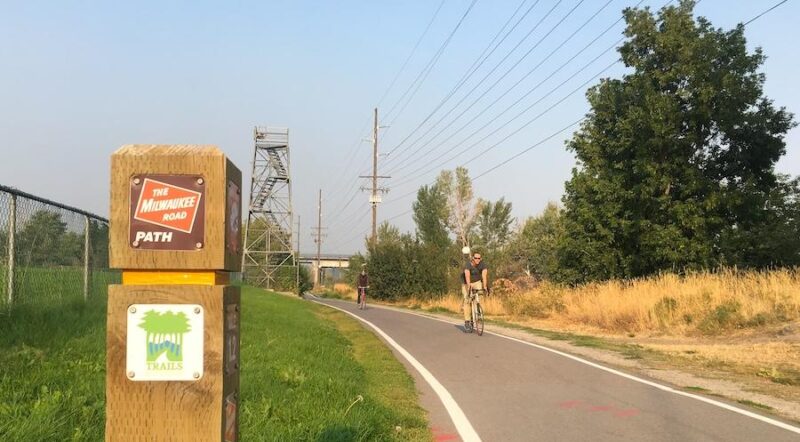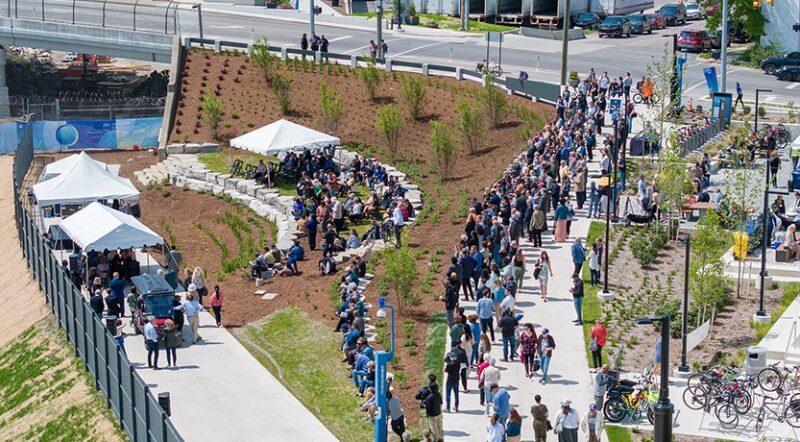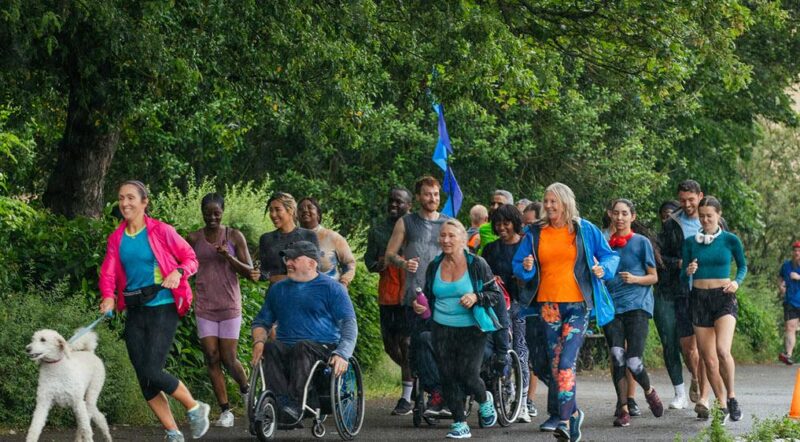Remembering Hal

Hal Hiemstra was a pivotal figure in the active transportation movement and served as Rails-to-Trails Conservancy’s vice president of national policy in the 1990s. His leadership helped enable the establishment, protection and implementation of the Transportation Enhancements Program—what we now know as Transportation Alternatives and has become the country’s largest federal source of funding for trails, walking and biking. Hal passed away unexpectedly in late July. His colleague and friend, Marianne Wesley Fowler, shares this remembrance.
Hal Hiemstra, or just Hal for there was but one, came to Rails-to-Trails Conservancy (RTC) in 1991 just after Congress passed ISTEA, the groundbreaking Intermodal Surface Transportation Efficiency Act.
RTC was a small organization back then. I know because upon hearing of Hal’s passing, I fumbled through old files and found a staff picture from his time. There stands Hal, almost twice as tall as the rest of us, with a full head of hair and that broad, impish smile splashed across his face. His smile could disarm a foe or endear a friend.
He was a wonderful and exceptional addition to our fledgling organization. Along with the policy knowledge and political contacts he brought to RTC, his presence was reassuring. Hal loved being in charge of things. He never shirked the loftiest or most mundane of tasks, from meeting with congressional leaders to cheerily sweeping out his office when funds for janitorial services were tight. He made sure we all knew that nothing could go wrong when he was on watch.
RTC conferences were Hal’s favorite. As one of the first to realize that the future of the trails movement was in connectivity, he dubbed our San Diego conference with the tagline “Making the Connection.” That theme still dominates nearly 30 years later.
Hal’s first policy challenge was to ensure the successful implementation of ISTEA’s newly passed Transportation Enhancements (TE) Program. He helped pioneer the TE Clearing House to track expenditures and RTC’s “Show Congress” events to build political will for investing in trails. He eagerly attended one of the first of these events in Long Beach, California, with Congressman Steve Horn. It marked the opening of the first bike station to be funded with TE dollars. A huge ice sculpture declaring “Ice T” had been commissioned for the occasion and stood in place beside an array of orators. An unflappable Hal addressed the crowd and remained unfazed by the audible debate over whether the rapidly shrinking “T” would melt before or after the speech makers were finished.
Hal’s finest RTC moment occurred at a particularly testy Congressional hearing on legislation to repeal railbanking. The chair of the committee vehemently opposed us. He treated our witnesses with disdain, rudely interrupting their testimony and cutting off answers to questions directed their way from friendly members. His favoritism toward the other side was unfettered. He even let their witnesses sit in seats reserved for Congress.
A friend of mine who attended the meeting was dismayed and angered by the chair’s infuriating manner. Unbeknownst to us, he wrote a scathing letter to the chairman’s hometown newspaper rehashing the man’s partisan demeanor and excoriating him in the harshest of terms, declaring him unfit to serve in Congress. His screed closed with a call for the chair’s defeat in the next election. (Such rhetoric may be common today but was seismic back then.)
At the next hearing, the chair was visibly angry. He banged his gavel repeatedly and unnecessarily. Finally, he pointed his finger at me in the audience and ordered me to come to the dais. Hal came too.
“You can’t do this,” he spluttered!
“Do what,” I responded?
“This,” he said and thrust a newspaper in my face, “Read this!”
“I can’t,” I said. “I don’t have my glasses.” I turned to Hal. “Would you read this please?”
Without missing a beat, Hal took the newspaper. With his soaring voice he read aloud the entirety of that scathing letter. The room froze in rapt attention as he savored every word, emphasizing those that were particularly damning. A hush fell over the stunned room. Never had such a scene been witnessed before. The decorum of the U.S. House of Representatives had been broken by the chair’s own doing. When finished, Hal quietly folded the paper and handed it back to the chairman.
“Thank you, sir,” he said. And without another word, Hal strode from the room.
We had a farewell tradition at RTC in the early days. Whenever staff left the organization, we threw a goodbye party. These parties would conclude with a song specially composed for them by altering the lyrics to a well-known melody.
When Hal departed RTC, I wrote his song to the tune of Camelot. It ended this way; sing it with me:
Don’t let it be forgot that once there was a spot,
For one brief shining moment that was known as
Hal le lot.
Read Hal’s obituary here.

Donate
Everyone deserves access to safe ways to walk, bike, and be active outdoors.



